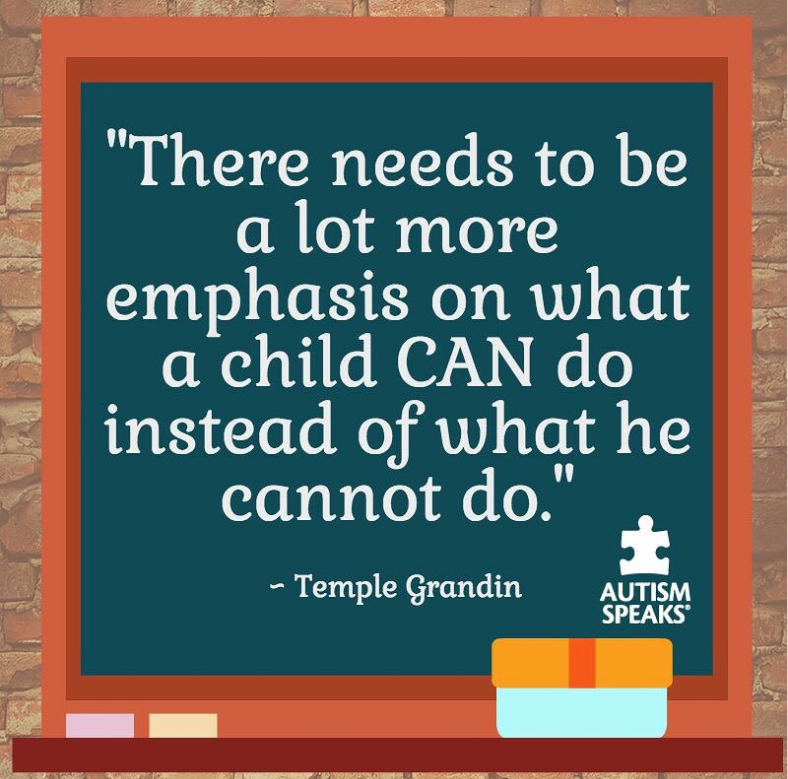Autism
What is Autism?
Autism is a complex brain-based disorder that affects a person’s behavior, social and communication skills. Symptoms can range from mild to severe and no two children with autism are exactly alike. It is part of a group of disorders known as Autism Spectrum Disorders (ASD).
If a child is diagnosed with autism, early intervention is critical to gain the maximum benefit from existing therapies. In addition, after children have been diagnosed by psychologists, developmental pediatricians, psychiatrists and neurologists, the need for treatment and services are abundant. Meeting the extraordinary challenge of this complex neurologically based developmental disorder – You can change the lives of children throughout Franklin and Grand Isle Counties who are diagnosed with autism. The Fund Drive focuses on NCSS’ autism initiative to combat the growing challenge of the explosive growth of individuals diagnosed with Autism Spectrum Disorder (ASD).
We believe that students, regardless of their abilities, belong in their local community schools. Our services are student-centered where the child and ongoing collected data drive programmatic decisions.
Treatments for Autism
Although there’s no single treatment for someone with ASD, many interventions have been created to support individuals in building their cognitive abilities, daily living skills, communication, and functional behavioral skills for them to successfully access their community.
Interventions that can be successful for persons with autism include but are not limited to: Applied Behavior Analysis, functional communication training, occupational therapy, speech and language therapy, physical therapy, special education supports, social skills training, life skills/activities of daily living training, the use of assistive technology, and other evidenced-based practices.
It is important to remember that each person with autism is different and often; the treatment package will vary from person to person based on the individual’s needs.
Prevalence
The most recent data on autism (March, 2020) indicates that 1 in every 54 children will be diagnosed with ASD. ASD is 4 times more common among boys than among girls. For every 1 girl diagnosed with ASD, 4.3 boys will also be diagnosed.
Individuals diagnosed with ASD also have a higher change of being diagnosed with additional diagnoses. 1 in 3 or 31% of persons with autism also have an intellectual disability.
The Centers for Disease Control and Prevention (CDC) indicates that autism is the fastest growing serious developmental disability in the U.S. More children will be diagnosed with autism this year than with AIDS, diabetes, and cancer combined.
Assessment
Diagnosis is made by a developmental pediatrician or a psychologist. Additional assessments may include speech and language, physical therapy, and occupational therapy assessments, functional behavior assessments, verbal behavior assessments, standardized cognitive assessments, or sensory needs assessments.
Educational, Programmatic, and/or Adaptive Resources & Materials
Children diagnosed with ASD benefit from individualized programming and can include various kinds of supports. These supports can include and are not limited to:
- Alternative or adaptive methods of communication
- Augmentative and Alternative Communication (AAC) devices
- Picture Exchange Communication System (PECS)
- American Sign Language (ASL)
- The use of visuals
- Social stories
- Discrete Trial Training (DTT)
- The use of manipulatives or tangible items during learning times
- Special education
- Direction Instruction (DI)
- Task Analyses (TA’s) or teaching individual steps of a task during skill acquisition
- Video modeling during skill acquisition
- Vocational Training
- Social-emotional wellbeing and self-advocacy training
- Teaching sensory/self-regulation strategies
- Therapeutic music and art sessions
- Adaptive Equipment for both fine and gross motor skill development
Sensory and Self-Regulation Needs
Some children and adults diagnosed with ASD may have sensory needs or may engage in behaviors to regulate themselves. Each person’s sensory needs are different and will require different strategies, interventions, or supports to help meet their sensory needs. Consulting with professionals or service provider will help identify any of these needs and can make recommendations specific to that individual.
Family Supports, Services, and Other Resources
In addition to the supports provided to children in an educational or clinic setting, families also have resources available to them in the home and community settings as well as supports for adults with ASD. These can include but are not limited to:
- Case Management to help provide families with:
- ABA guided support across settings (home, community, school) or multiple service providers
- Assistance with accessing funding, training, and personal care services
- Assistance with accessing community supports and services
- Connect families with parent training resources
- Music and Art Therapy Services (https://www.ncssinc.org/developmental-services/music-art-program)
- Peer advocacy services and supports
- Collaboration with the Division of Vocational Rehabilitation (Voc. Rehab)
- Respite Care
If you are interested in any of the services listed above, please reach out to us here: https://www.ncssinc.org/contact
ASD and Vaccines:
According to the CDC (https://www.cdc.gov/vaccinesafety/concerns/autism.html) “there is no link between vaccines and autism”. Studies have shown that there is no link between receiving a vaccine and developing ASD. These studies have also shown that various vaccine ingredients do not cause autism.
Camps for Individuals with ASD or other Intellectual Disabilities
There are several summer camps for people with ASD or other intellectual or developmental disabilities in Vermont! Some of these camps run during day time hours and some of them are overnight camps. Explore the resources below for more information.
- Camp Akeela
- Camp Thorpe
- Camp Maple Leaf
- Camp Rainbow
Resources:
For more information on Autism, please visit:
https://www.cdc.gov/ncbddd/autism/facts.html
https://autismriskmanagement.com/


 Skip to Content
Skip to Content
